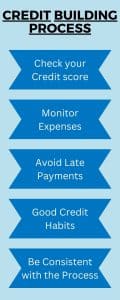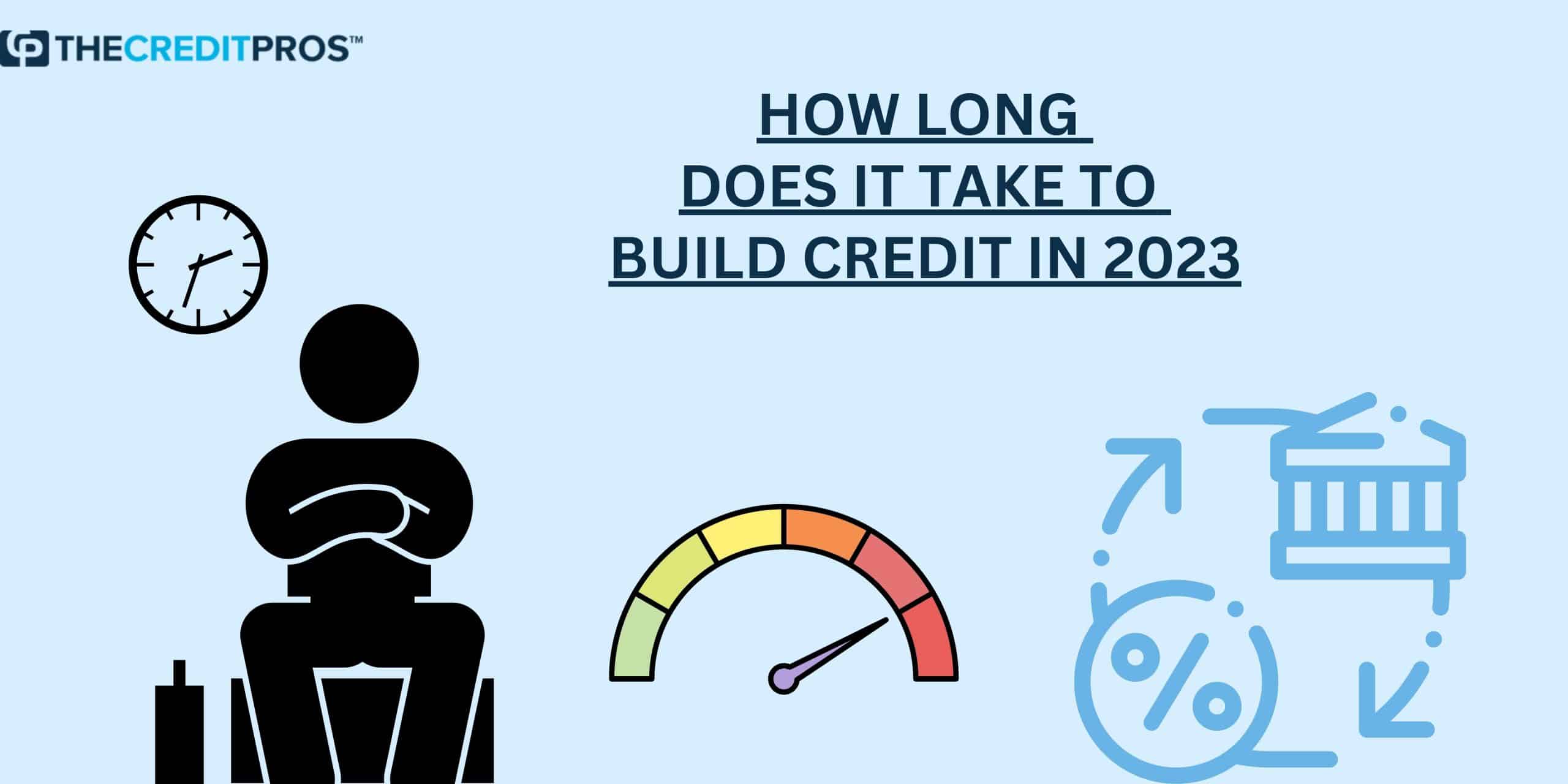Are you aware that nearly 70% of Americans claim that borrowing money has increased their financial situation? (according to Forbes survey)
Multiple online strategies and advice are available to improve your finances that contradict traditional methods. Do these techniques and financial tips work? Are you looking for a genuine way to build credit quickly? Do you know how long does it take to build credit?
In this article, let us look at what you should know about credit requirements, the process involved, and some useful tips to build your credit report.
Basic Requirements to Build Credit
There are two types of credit build; one is to build credit from scratch, and the other is to improve an existing low credit score.
Building from the Start
First, it is crucial to understand the essential things that contribute to building your credit. First, you need to have a credit history that contains all the information about your money transactions from the very beginning. You can check your credit score for free if you already have a credit history.
When you apply for a loan or credit card, the three major credit bureaus (Experian, TransUnion, or Equifax) begin monitoring your credit history. In parallel to that, you will be given a credit score (usually starting at 300), which will determine your creditworthiness hereon.
Before applying for a loan, clarify your budget and the possibility of repaying the loan amount on time. If you don’t have a regular day job or an appropriate annual income, it is not advisable to apply for a loan. According to Bankrate data, about 43 million American students are still in debt.
Improving a Poor Credit History
Recovering from a poor credit history can take several years, depending on the credit score and the amount of money you have to invest in recovery. For instance, if your existing credit score lies between 300 and 550, it is considered a low or even bad credit score; getting it to 680, a good score, could take months to years. Of course, if you suddenly came into a large sum of money, you could build your credit score more quickly because you could use more money to do so.
If you are trying to build credit for a poor credit history/low credit score, you must maintain a debt management strategy to clear off your debt. To begin with, track your monthly expenses, including all day-to-day expenses, bills, EMIs, loan payments, emergency spending, and savings. Tracking these expenses consistently enables you to locate the places that are hindering you from improving your credit history and score.
Cutting down unnecessary expenses alone won’t do the job. It is necessary to repay your debts and re-evaluate credit applications and purchases.
If you find it difficult to rebuild credit on your own, you can request a family member or friend with responsible credit habits to make you an authorized user of their credit account. An authorized user can access the owner’s credit card and use it to make payments and purchases.
Effects of Credit Scores on Building Credit
Building credit refers to improving your credit scores. A credit score reflects your credibility in handling finances with lenders, credit unions, and banks. Lenders offer loans based on credit scores issued by credit bureaus.
To qualify for a loan, your credit score must fall in the eligible category of loan requirements proposed by the lender. For example, to qualify for a boat loan, you must have a credit score of 670 and above, or it must fall in the good credit score range.
If you plan to make a large purchase or start a business, applying for a new line of credit seems plausible. However, the risk factor of such events is huge, and it could result in bankruptcy. Maintaining a good credit history is crucial to surviving in the financial world.
Credit Builder Loans

A credit builder loan is specifically offered to build consumers’ credit scores. Usually, the limit for the loan is between three hundred dollars and a thousand dollars with lower interest rates.
Once you get approved for the loan, you can use this type of loan to repay the debt quickly to boost your credit score. The loan duration starts at six months, and the maximum term is twenty-four months.
However, it is not guaranteed that you will immediately see a hike in your score as it takes 30 days for the lending agencies to report your payment history to the credit bureaus.
Credit Building Process

If you haven’t read our article, please refer to the blog- 7 ways to improve your credit score. In this section, here is a list of factors that would help boost your credit score.
Payment History
Your payment history is a major credit scoring factor determining your credit score. On-time payments are the best advice anyone can offer to build credit. Start by paying only the due amount to clear the debt eventually.
Bills
Paying bills on time has an effect of 35% on your credit score. You can enable auto payments on your mobile or banking portal to avoid missing payments.
Miscellaneous Factors
- Hard Inquiry- multiple credit card applications negatively impact your credit reports. A hard inquiry is when a lender asks for your credit file before approving a loan application, thus affecting your credit score.
- Credit Utilization ratio- You must maintain a good credit utilization ratio, i.e., below 30%. The ratio of your current credit debt to the total credit limit is called the credit utilization ratio. In other words, it is the ratio of your credit card balance to your line of credit (borrowing limit).
- Revolving Credit- According to Experian statistics, the average American owns 3-4 credit cards which are good when you know how to manage them but can also have negative impacts, especially if you are trying to create a zero-sum credit balance.
Suggested Articles:
How to Use a Credit Card to Build Credit? A Useful Guide in 2023
FICO 10 & 10T: How To Outshine Any Updates?
Frequently Asked Questions
How long does it take to build Credit using a credit builder loan?
Considering the debt amount, typically, it will not take more than a year to repay it fully. When you repay the debt on your credit account, it takes 30 days for the details to be entered by credit reporting agencies to reflect on the credit report.
How do I build my Credit?
The golden rule of building Credit is to make timely payments a habit, try to maintain a good source of income, avoid credit mix (credit accounts) applications, be conscious of the credit balance, and overall maintain a good credit score.
Is it possible to build credit without a credit history?
Suppose you don’t have a credit history. In that case, you can become an authorized user from a close relative’s account, or you can apply for a secured credit card which is easy to qualify for a bad credit history or no credit history.
The Bottom Line
I hope this article helped you briefly understand how to build credit. If you are still not convinced with these methods, you can opt for a professional credit repair service company, such as TheCreditPros, to help repair and build your credit scores.
TheCreditPros has been a credit repair services company for more than a decade, producing positive results for customers. Get a free consultation and repair your credit score with the help of an AI-driven personal credit management system.


